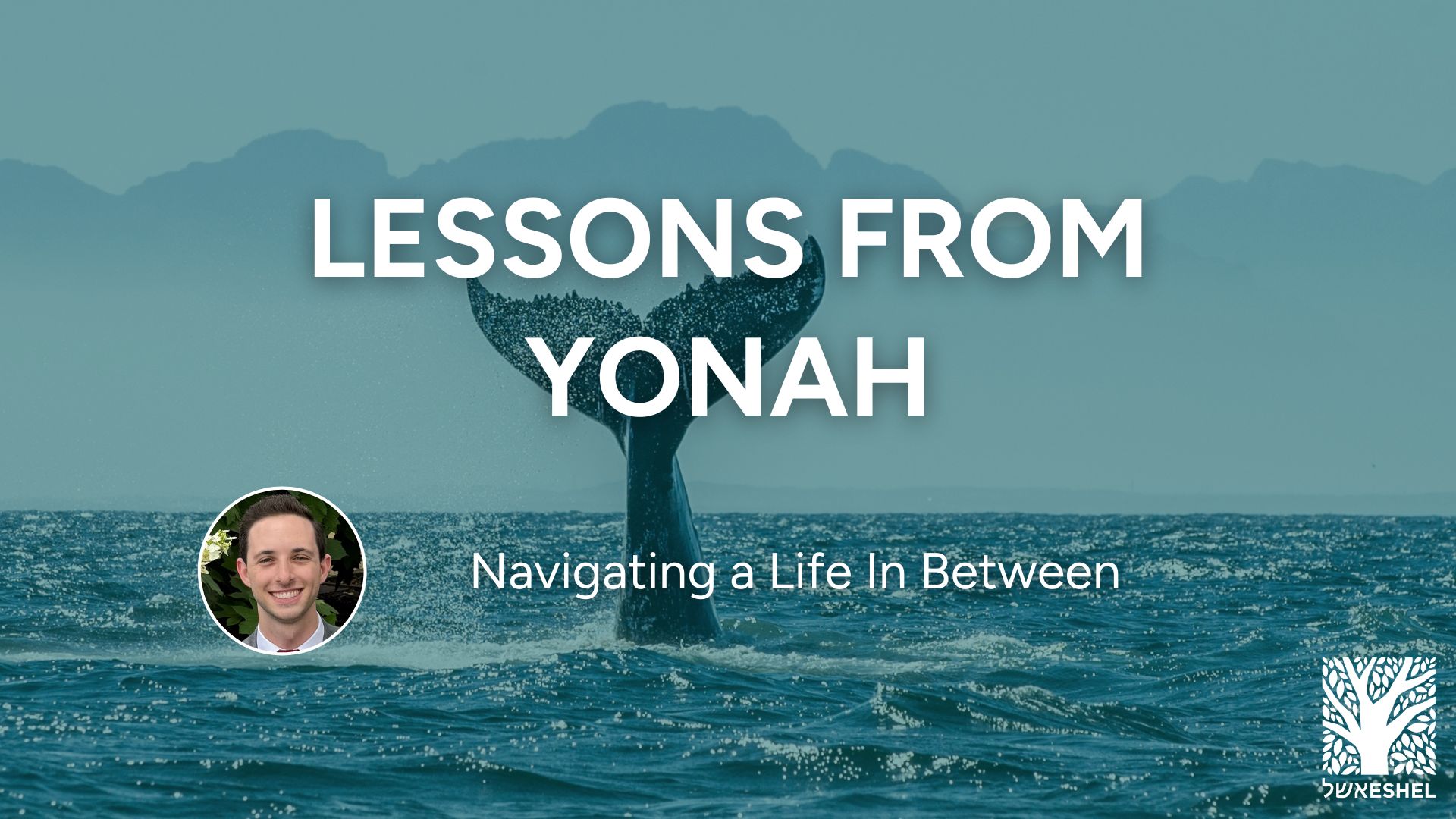
When I learned about Yom Kippur in day school, I was told of a magnificent judge in the vast heavens, passing verdicts on the other side of slowly closing gates. These verdicts determine the trajectory of our entire next year. Perhaps, if our prayers contain the requisite power, our kavanah will elevate them high enough to penetrate the threshold of the heavenly gates before their doors completely close. We spend the 25-hour period of the holiday trembling on Earth before our Creator above, emulating the humility of our forefather Avraham; we are “ashes and dust” in the face of an awesome Judge.
It is a holiday of epic proportions, whose traditional liturgy foregrounds contrasts of massive scale: the lofty heavens and earth far below, the mighty and the powerless, the pure and the impure. At Mussaf on Yom Kippur, we read Unetaneh Tokef, which presents a similarly binary dynamic: “Who will live and Who will die…Who will die before their time and Who shall die in their allotted time…Who shall be poor and Who shall be rich…Who shall be humbled and Who shall be exalted?”
On Rosh Hashanah we begin and on Yom Kippur we continue to repeat these words in our effort to access a seemingly untouchable Creator. And then at Mincha, in the waning hours of the holiday, we suspend our prayers, and read the story of an ordinary man named Yonah, who summons the voice of God without even trying.
The opening pasuk of Yonah is notoriously lacking in context. We do not know who Yonah is, other than his descendance from a man named Amitai. Hashem’s voice appears before we even know the name of our protagonist and his lineage:
וַֽיְהִי֙ דְּבַר־יְהֹוָ֔ה אֶל־יוֹנָ֥ה בֶן־אֲמִתַּ֖י לֵאמֹֽר׃
The word of G-d came to Jonah, son of Amitai.
God commands Yonah to go to Nineveh and warn of God’s looming judgement on account of their wickedness. So what does Yonah do? He runs away.
Yonah is not a typical prophet. He is not like Avraham, who initiates his own relationship with God, who wrestles with his Creator upon being told of Sodom’s impending doom (a tale with many parallels to Yonah’s). Nor is he like Moshe or Jeremiah, who tell God that they are unworthy of their great calling.
Yonah responds to God’s voice as though it is an imposition; he flees. And in the very moment that he attempts to run from God, Yonah transitions from the role of anonymous man to reluctant prophet, thrust into the liminal space between the lofty and the mundane. He moves between binaries with caution and even chaos. As Yonah runs from God he comes face-to-face with circumstances of epic contrast; a tiny ship in a massive sea storm, his own body dwarfed in the bowels of a big fish.
From a literary standpoint, the big fish (dag gadol) functions as Yonah’s foil; a large creature governed by Divine power, in contrast to the small man who wields his agency to defy God’s will. The fish is also the ultimate physical manifestation of the liminal spaces Yonah occupies throughout the story. It is neither sea or land, wet or dry. If indeed the fish in question is a whale, it must constantly alternate between the water’s surface and the depths of the sea to survive. It is a mammal, yet it lives underwater. Its most basic functions of survival demand a liminal nature.
Trapped in the fish with no hope of escape, Yonah finds himself forced into an introspective state, and for the first time in the story he responds to the voice of God. Yonah’s prayer describes the circumstances that led him to this very moment, exalting the Divine’s role in it all. In the belly of the beast, Yonah’s prayer echos the story’s recurring theme of contrasting scale:
לְקִצְבֵ֤י הָרִים֙ יָרַ֔דְתִּי הָאָ֛רֶץ בְּרִחֶ֥יהָ בַעֲדִ֖י לְעוֹלָ֑ם וַתַּ֧עַל מִשַּׁ֛חַת חַיַּ֖י יְהֹוָ֥ה אֱלֹהָֽי׃
I sank to the base of the mountains;
The bars of the earth closed upon me forever.
Yet You brought my life up from the pit,
My ETERNAL God!
The mountains and their base, the pit and what exists above.
God’s sentence against Yonah pushes him to accept his fate, and he embraces his mission to warn Nineveh. After spiritually gestating in the fish for three days and three nights, the fish expels Yonah, and he emerges onto the shores of Nineveh reborn, armed with a newfound purpose, conviction, and voice.
For queer religious Jews observing the High Holiday season, Yonah’s role feels all too familiar. We are born into communities that isolate us in binaries of all kinds—man and woman, man and wife, pure and impure, frum and off the derech. These stark choices can feel like the difference between the safety of dry land and the howling abyss of a stormy sea. Jewishness and queerness can simultaneously feel dangerous and safe, as the choice of one over the other offers its own promises of both inner peace and turmoil. To prioritize just our Jewishness can offer external normalcy, but at the expense of our inner peace. Alternatively, to just prioritize queerness denies us of our deeply-rooted religious identity and relationship with the Almighty. When confronted by the voice of God, we often compel ourselves to run all the way toward one side over the other. And, as individuals who have spent countless Rosh Hashanah and Yom Kippur services questioning our worthiness of closeness to God, for many of us, our instincts have compelled us to run away into the storm.
On Yom Kippur, we are not just trembling on Earth, staring up at the infinite space between us and the Heavens, manifesting the ascendance of our prayers. The spirit of the Divine descends ever closer, and, just as in the first pasuk of Yonah, calls out to us, in recognition of our inherent Divine worthiness, and envelops us in the liminal, spiritually fertile territory represented by the belly of the fish. Yom Kippur is an invitation to live in the tension of the in-between; it is an opportunity for rebirth; a cradle of divine acceptance and a call to divinely accept.
This Yom Kippur, as with every Yom Kippur, Hashem is calling on us, in full acceptance of our being, to bring righteousness into the world with purpose and a full voice.
Let’s take the call.

